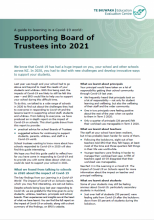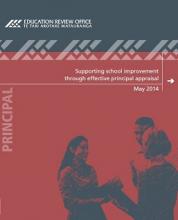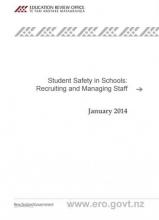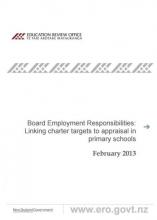A guide to learning in a Covid-19 world - Supporting Board of Trustees into 2021
This short guide is for Board of Trustees for schools. It covers what we found from talking to both Boards of Trustees and schools in 2020 about the impact of Covid-19. The guide shares suggested actions for continuing to support students, parents, whānau and staff in a Covid-19 world.













